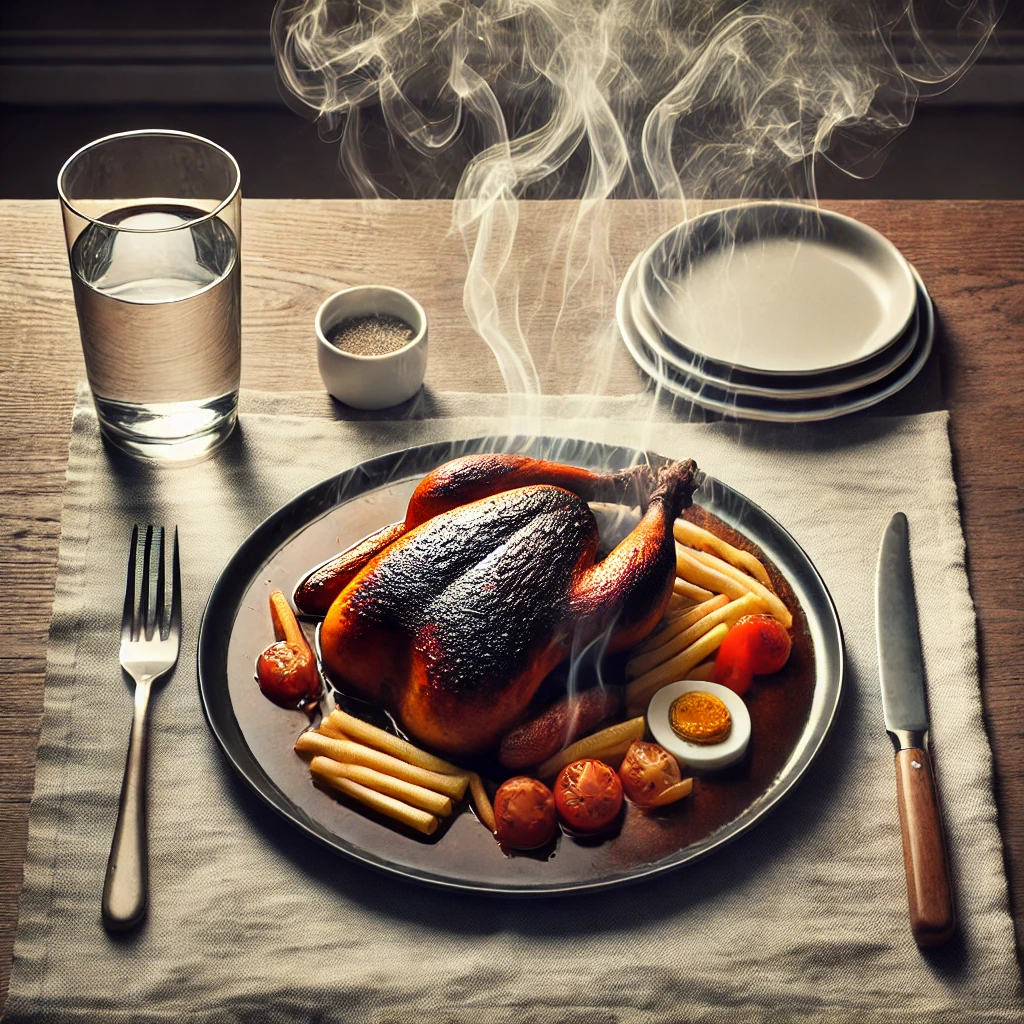
We all experience moments when things don’t go as planned. One such common scenario is burning dinner. While it can be disheartening, especially after putting in effort to prepare a meal, how we choose to view and react to the situation can significantly affect our emotions and overall well-being. Reframing our perspective allows us to see things in a more neutral light, avoiding unnecessary negativity and stress.
The Scenario
Imagine you’ve spent time preparing a nice dinner. You’ve followed the recipe, set the table, and are looking forward to a delicious meal. But then, as you take the dish out of the oven or off the stove, you realize it’s burnt. The dinner is ruined, and your immediate reaction might be frustration, disappointment, or even self-criticism.
The Negative Perspective: “I can’t even cook a simple meal right.”
When faced with a burnt dinner, it’s easy to slip into a negative perspective. Thoughts like “I can’t even cook a simple meal right” can arise. This perspective is harsh and self-critical, and it can lead to feelings of inadequacy and frustration. It focuses on personal failure and magnifies the mistake, making it seem larger and more significant than it actually is.
Impact of the Negative Perspective:
- Emotional Distress: Feeling frustrated, disappointed, and self-critical can lead to emotional distress and lower self-esteem.
- Increased Stress: Negative thoughts can increase stress levels and create a sense of pressure and inadequacy.
- Hindered Growth: This perspective can prevent us from learning from the experience and finding constructive solutions.
The Neutral Perspective: “The dinner got burnt.”
Reframing the situation with a neutral perspective can help us manage our emotions and view the event more objectively. Instead of blaming ourselves, we can simply acknowledge the fact: “The dinner got burnt.” This statement is factual and devoid of judgment. It focuses on the outcome rather than assigning blame or criticizing our abilities.
Benefits of the Neutral Perspective:
- Reduced Emotional Impact: By avoiding self-criticism, we can minimize negative emotions and maintain a more balanced emotional state.
- Clearer Thinking: A neutral perspective allows us to think more clearly and rationally about what happened and how to address it.
- Opportunities for Learning: Viewing the situation neutrally opens the door to learning from the experience and finding ways to improve in the future.
Practical Steps to Reframe Your Perspective
- Pause and Breathe: When you realize the dinner is burnt, take a moment to pause and breathe. This can help you calm down and prevent an immediate negative reaction.
- Acknowledge the Fact: Instead of jumping to self-criticism, acknowledge the fact: “The dinner got burnt.” This helps you stay focused on the situation rather than your perceived shortcomings.
- Identify the Cause: Reflect on what might have led to the burnt dinner. Was the heat too high? Did you get distracted? Understanding the cause can help you learn from the experience.
- Find a Solution: Think about what you can do next. Can you salvage part of the meal? Do you have ingredients for a quick alternative? Focusing on solutions helps you move forward constructively.
- Learn and Adjust: Take note of what you can do differently next time to avoid burning dinner. This could involve setting a timer, checking the food more frequently, or refining your cooking techniques.
Embracing Mistakes as Learning Opportunities
Burning dinner is a common mishap in the kitchen, and it’s important to remember that everyone makes mistakes. What matters is how we respond to these mistakes. By adopting a neutral perspective, we can turn a frustrating experience into a learning opportunity. Each mistake teaches us something new and helps us become better at what we do.
Conclusion
Reframing our perspective from a negative to a neutral stance can significantly improve our emotional well-being and resilience. When faced with situations like a burnt dinner, choosing to view the event objectively rather than self-critically allows us to manage our emotions better and find constructive solutions. Remember, the dinner got burnt – it’s not a reflection of your abilities or worth. Embrace the opportunity to learn and grow, and you’ll find that even small setbacks can lead to valuable insights and improvements.
4o